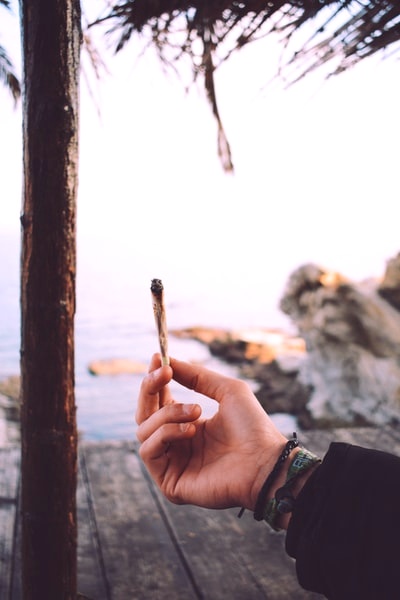Five* Latin American nations are holding presidential elections in 2021, with some important legislative elections taking place as well. Some of these contests have implications for cannabis policy, and we will be looking at what is at stake in each vote. In January, we previewed Ecuador’s presidential contest, the second round of which will be held this Sunday, April 11. On that same day, the first round of Peru’s elections will take place. With medical cannabis already legal in the country, could further legalization be on the table after the elections?
Until early February, George Forsyth, a former soccer player, was the clear leader in the polls. Forsyth is in favor of keeping medical cannabis legal, but does not support adult-use legalization. As election day approaches, however, Forsyth’s popularity has taken a steep dive. According to one recent poll, he has dropped to sixth place. That same poll shows Keiko Fujimori and Hernando de Soto tied for first place, each with 9.8% of the vote.
Under Peruvian law, if no candidate passes the 50% threshold in the first round, the winner and runner-up must dispute a second round. Given the large number of candidates and how fractured the vote is, it is almost certain that a second round will be needed this year.
Fujimori, who leads a party called Fuerza Popular, is the daughter of former president Alberto Fujimori, currently incarcerated for human rights abuses committed during his mandate. (Keiko is herself is out on bail pending a graft investigation, and must receive authorization from a judge before any campaign trips outside Peru’s capital, Lima.) An avowed defender of her father’s political legacy, it is not surprising that Fujimori has taken a hard line against cannabis, declaring that its use cannot be authorized. Nonetheless, there is no indication that as president she would try to roll back medical cannabis legalization. In any case, there has historically been support for legal medical cannabis within Fuerza Popular.
Some of that support actually came from Fujimori’s brother, Kenji, who introduced a bill to legalize medical cannabis during his time in the Peruvian Congress. However, it is unlikely that Keiko will be looking to her brother for advice on cannabis, or anything else, as the siblings are bitter political rivals.
For his part, de Soto, a renowned economist (and former Fujimori ally), has made it clear that he is a social progressive, despite his classical liberal stance on economic matters. Asked about a series of topics including medical cannabis, de Soto said he is “very tolerant” and that everyone should “choose what they want.” We could not find any statements by de Soto on the prospect of adult-use cannabis legalization, and his Avanza País party’s platform is silent on the issue. However, one would expect him to at least be open to the idea, and not just because of his views on individual freedom.
De Soto is best known for his work on the informal economy. According to him, the assets of those who participate in the informal economy “languish as dead capital in the shadows of the law.” Complete legalization of the cannabis sector would be consistent with de Soto’s worldview. Moreover, the urbane economist is almost surely paying attention to what is happening around the world with regard to cannabis, in particular the legalization push across the United States.
While the legalization of recreational cannabis under a de Soto administration is conceivable, it would certainly not be the case if Rafael López Aliaga reaches the presidential palace. While supportive of medical cannabis, he has derided calls for legalizing recreational cannabis as “frivolous.” He has also invoked the “gateway drug” trope, saying he stopped using cannabis after one of his friends “got hooked and moved on to cocaine.” This is perhaps not a shocking stance for a candidate who “represses his sexual desire by thinking of the Virgin Mary and flails himself with a cilice, a sackcloth garment with points that stick into the body, a practice from early Christianity.” While López Aliaga’s campaign appears to have lost some steam in recent weeks, he is within striking range of the top two spots.
Another candidate with a good shot at the second round is Yohny Lescano, an attorney and former congressman. In fact, some recent polls show Lescano in the lead. Lescano opposes recreational cannabis, but he does not oppose medical cannabis.
Finally, there is Verónika Mendoza, considered to be the Peruvian left’s best chance of making it to the second round. Mendoza supported the legalization of recreational cannabis in the past, but appears to have dialed back her stance. In January, she expressed her support for medical cannabis, pointedly leaving out adult-use cannabis. This may reflect a change of heart, but it could also be part of an effort to appeal to socially conservative voters otherwise on board with her economic agenda.
A win by de Soto or Mendoza would raise some intriguing possibilities, while other outcomes would be unlikely to set in motion significant changes to Peru’s cannabis framework. That said, medical cannabis advocates can breathe easily, as none of the leading candidates appear poised to turn back the clock in that regard.
For now, let us see what April 11 brings.
* Technically speaking, Nicaragua will be having an election in November, but as things stand, the ruling party will be free to disqualify opposition candidates.
The post Cannabis and Ballots, Part 2: Peru appeared first on Harris Bricken.






